Meet the man on a mission – IAS officer Tukaram Mundhe
This is part-2 of the story on Tukaram Mundhe, a fearless civil servant in Maharashtra who has never cared for the consequences while discharging his duties. A 2005 batch IAS officer who’s currently serving as CMD, PMPML, Pune, Mundhe has been transferred nine times in the past 12 years as a result of the audacious steps he has taken in each of his postings. You can read part 1 here.
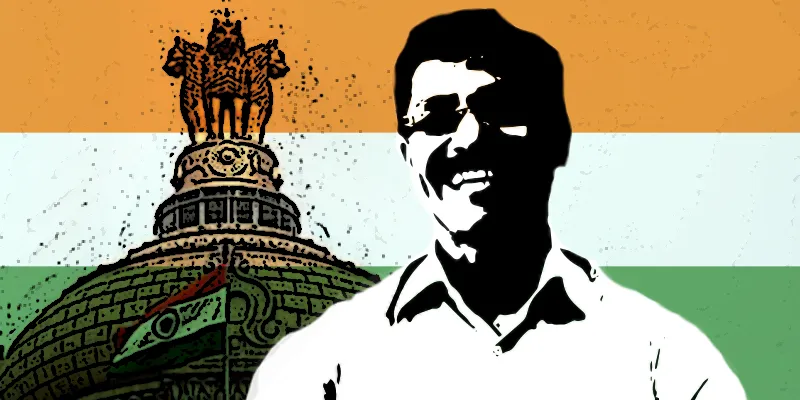
Solapur – part –II : ‘Second most difficult decision of my life’
In June-July, pilgrims from all over the country flock to Pandharpur, located on the banks of Bhima river in Solapur district. In 2012, several pilgrims were mowed down when a truck driver lost control of his vehicle. A small mob blocked the road with the dead bodies and demanded that the collector meet them. So, Mundhe went to the spot and tried to pacify the crowd. They, however, refused to remove the bodies unless their religious heads met them. The mob size by then had increased to more than 1,000.
Around 6pm, after holding discussions with their local religious heads, the mob demanded that the authorities hand over the truck driver to them. The incident had happened on the first day of the monsoon session of the Maharashtra assembly. All the top local authorities including the SDM, SP, local Tehsildar and a QRT (Quick Reaction Team) had accompanied Mundhe to the spot. After he threatened stringent action against the gathered people, they agreed agreed to remove the bodies from the road. But just as Mundhe ordered that the bodies be moved to to the hospital, a group of individuals started pelting stones at the officers, and even torched a few official vehicles with 5-6 constables inside them.
The situation seemed to be going out of control. The mob had grown 5,000-strong by now. Mundhe charged towards the mob because he knew that if he retreated, he'd be attacked (mob mentality). The officers pulled him back but immediately the mob attacked them. Mundhe says, “We charged again. This went on for 30 minutes. We all thought we're going to be dead. We called the police force and SRPF but it took them two hours to reach. The news had reached the assembly then and the minister was on his way.”
Around 6:30pm Mundhe realised that he couldn’t hold the mob back for long and feared getting lynched by them. After giving it some thought he shouted, 'Fire’. This left many bewildered, since the QRT was looking at the SP for orders. Mundhe said he was the DM (District Magistrate), and taking the responsibility for the order. Within minutes, the mob disappeared. The firing claimed three casualties. By 7pm everything became normal. Minister reached the spot by 8:30pm, followed by the IG from Aurangabad and the Deputy CM. Mundhe and his team prepared a report on the incident by 5 next morning and sent it to the government as the assembly was in session.
Mundhe says, “It was the second most difficult situation (toughest decision) in my life to order firing on civilians. I had no alternative as the lives of devotees had to be saved and loss of property to be avoided as well. The incident had multiple facets which we couldn’t see at that point -- the communal angle (as the truck driver was a Muslim), the ire of the people against a local police officer; and numerous black marketers who gathered within a couple of hours (who had rage against me).”
“It is very easy to look back and dissect these issues. However, such decisions have to be taken at the spur of the moment,” he adds.
Mundhe believes that those who criticise the public sector for its red-tapism often forget about the unique intricacies of the issues involved.
Using people’s power, Mundhe added 3,300 km of Panand Raste (farm roads) in villages across the district between November 2011 and March 2012. With public participation he could achieve it all in Rs 7-8 crore.
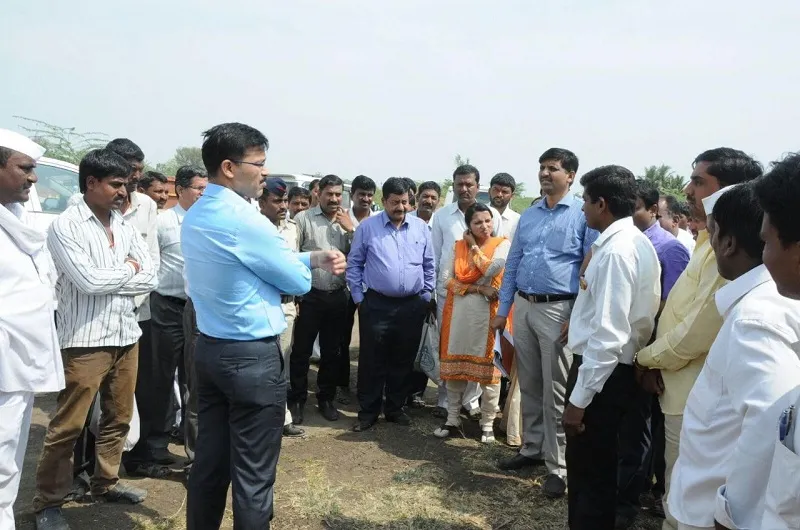
During his Solapur stint, Mundhe reclaimed more than 5, 000 hectars of government land from illegal authorisation. He came to know about the water woes of Solapur in the summer, and made sure that the tanker lobby was broken by installing GPS navigation on tankers and allotting tankers on the basis of need only.
Related read – From teaching in a garage to becoming the director of 3 schools: Nisha Jaiswal’s story
Rs 143 crore to Rs 500 crore in one year
In September 2012, Mundhe was transferred to Sales Tax department, Mumbai as Joint Commissioner.
Mundhe handled investigations there. Before he went there, the highest recovery was Rs 143 crore in a year. He too it to Rs 500 crore. He set up a system there. But again, he found himself at the centre of a lot of issues as many big financial institutions were getting impacted due to his work. He was transferred to Solapur as District Collector in November 2014.
Solapur returns – from tanker fed district to tanker free district
Although Solapur falls in a drought-prone area, it boasts of the highest number of sugar mills in Maharashtra. Every year, the district faces water scarcity for which hundreds of water tankers are deployed in the city and fodder camps opened for cattle. Mundhe identified the root cause of the problem of scarcity in the unscientific and unplanned usage of water resources in the district
Meanwhile, in December 2014, the Maharashtra government launched Jalyukt Shivar, the water conservation scheme. Mundhe implemented a pattern in Solapur which later on came to be popularly known as the Mundhe pattern and emulated by the whole state. He selected 282 villages (as per the norms) and started working on the following three principles:
- Area treatment
- Drained land treatment
- Scientific use of water
He completed water conservation works (compartmental bunding and well recharging) on more than 130,000 hectares in five months; 30,000 wells were recharged by farmers. They also took care of the desilting of the river. As a result, of the Rs 150 crore worth of total work that was done, the people’s contribution was worth almost Rs 70-80 crore.
The programme was converted into a mass movement with people’s participation. Mundhe made it mandatory for the villagers to adopt scientific management of rainwater and encouraged them to take ownership for conservation of water. A structure of incentives and disincentives was put in place. As a result, more than 30,000 wells were recharged and drain line treatment (including river desilting and repair of the existing water bodies) improved.
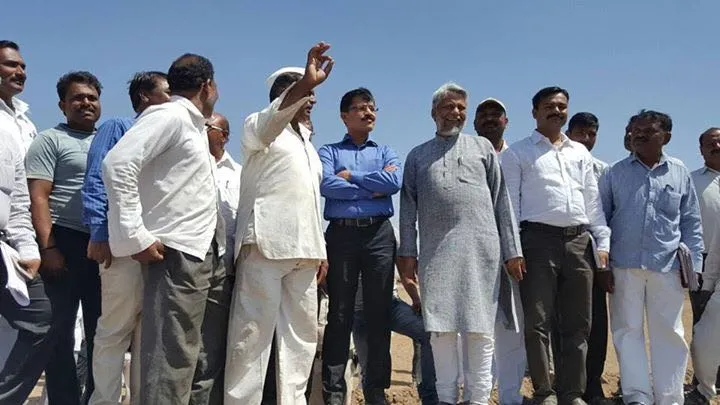
In addition, Mundhe streamlined the system by putting checks and verification in demand and availability of water and water resources in the villages. Besides, Mundhe also organised awareness camps on water conservation, cropping pattern and use of drip irrigation, which further helped in alleviating the water scarcity in the district.
Solapur, which was one of the DPAP (drought prone areas programme) districts with 10 out of 11 blocks being vulnerable, improved tremendously under Mundhe. In 2012-13 there were 600 tankers being used for water supply. In the summers of 2014-15, the numbers came down to 40 tankers and in 2016-17, not even a single tanker was deployed, thanks to the work done under Jalyukt Shivar by Mundhe.
Pandharpur Wari and defecation free Solapur
In Solapur, Mundhe was given the charge of Pandharpur Wari (annual pilgrimage) and was appointed as the chairman of the temple committee. One of the major issues in Pandharpur is open defecation causing health concerns during the Wari. More than 14-15 lakh people attend the Wari and a majority of them defecate in the open along the river. Because of this, half of the Pandharpur population migrates to other places for a month to avoid falling sick.
There were high court orders to not use the bed of the Chandrabhaga (Bhima) river for Wari but Varkari (people who perform the Wari) refused to abide by it. Mundhe appealed to the court to allow the river bed to be used only for spiritual purposes and got some relief.
He then developed 65 acres of land near the temple and shifted all the Varkaris there. The place, whichhad water, electricity and toilet facilities, was readied in 21 days at a cost of Rs 5 crore. Almost 3,000 toilets were constructed. He even implemented an incident response system. He got the KT Weir constructed in 91 days at a cost of Rs 10 crore for pilgrims to take a holy dip in the river.
Mundhe applied scientific principles to the Incident Response System under the Disaster Manageent Act at Wari. A system was developed in such a manner that resources, responsibilities and authorities were fixed and accountability was built in.
But his real test was yet to be taken. On D-day, ie ekadashi, at least 3-4 lakh people line up for darshan. Earlier, the doors of the temple used to be closed from 12-5am for pooja to be performed by the temple committee and the Chief Minister. After proposing a solution to the CM, he cut this duration. When the temple committee resisted the move by arguing that god should be allowed to have his rest, Mundhe’s reply was that god would not like to rest if there's a queue of devotees outside.
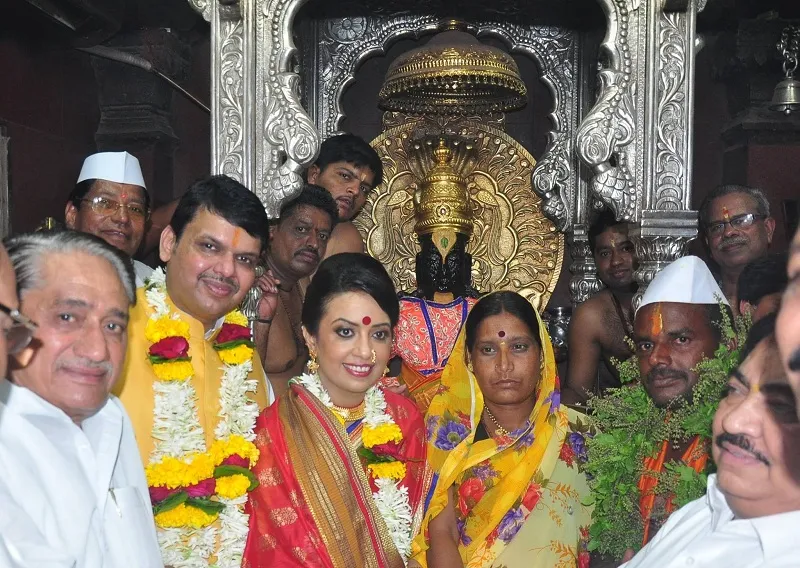
After multiple rehearsals (of pooja), he charted out a plan to close the temple from 12:40am to 2:30am only for the CM and temple committee to perform pooja. Moreover, he didn’t allow any VIP darshans. All these steps helped reduce the darshan time from 30 hours to only 15-18 hours which was a huge relief for the devotees.
Mundhe also coordinated and ensured smooth organisation of the Siddheshwara Yatra in January the following year.
Along with the efficient organisation of these yatras, under Mundhe mining revenues doubled from Rs 90 crores to Rs 180 crores and crop loans (and term loans) shot up from Rs 3,000 crore to Rs 10,000 crore. Solapur became the best performing district then (Mundhe was felicitated with the best collector award). But he was attacked once again because his actions were hurting many powerful people.
After an 18-month stint in Solapur, Mundhe was transferred to Navi Mumbai where he served from May 2016 to March 2017 as commissioner.
You may also like the story of Neichute Doulo: the Naga man encouraging 7K youth to take up entrepreneurship
People’s commissioner
By now, Mundhe was already known as a no-nonsense officer in the state.
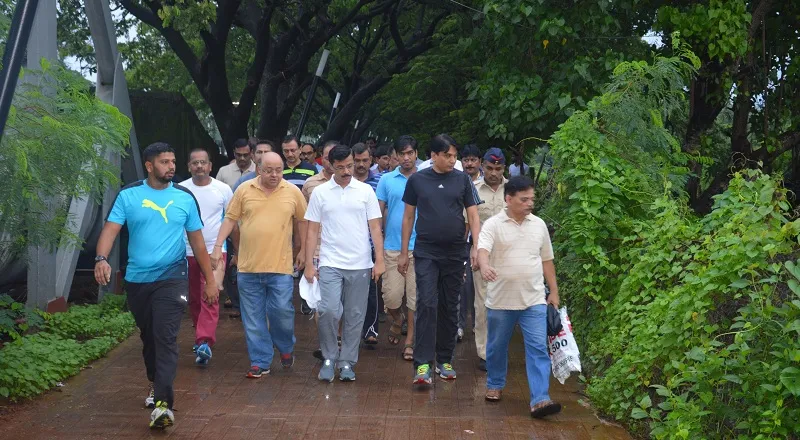
Navi Mumbai is one of the largest planned cities of India with a population of 1,120,547 (2011 census). The city is governed by Navi Mumbai Municipal Corporation (NMMC). As a commissioner of NMMC, Mundhe focused on citizen and technology led initiatives to address the key problems. He introduced numerous processes and innovations. The major one’s among them are:
- Online grievance redressal system: This ensured automatic routing of the complaint to the concerned department, dynamic listing of top grievances, time-bound responses, auto escalation, accounting feedback/ratings from the citizens and an in-built data analytics.
- Walk with commissioner: Under this initiative, the Municipal Commissioner, along with senior officials, met citizens in their respective areas every Sunday. The data obtained from this forum (in the form of feedback, suggestions) was regularly analysed for trends and deliberated for future planning.
- Ease of doing business: Single window system for permission and trade licence, and usage of digitally signed electronic certificates helped reduce human intervention and made the process smooth.
- Cashless initiatives: Encouraging online payments via portals, mobile apps and Citizen Facilitation centres to reduce dependency on cash.
- Solid waste management initiatives: Segregation at source was made mandatory, else a fine was imposed along with non-lifting of the garbage. As a result, segregation at source went from 5 percent to 80 percent. Along with this, collection of garbage was monitored online with RFID tracking of bins and vehicles. The city was made open defecation free.
Ultimately, Mundhe was keen to bring in more transparency and efficiency in the public delivery systems. He suspended many officers including Deputy Municipal Commissioner Prakash Kulkarni, the head of the property tax department, for administrative irregularities. He didn’t shy away from scrapping projects which were not needed and diverted the funds to make the city disabled-friendly. His efforts were recognized by the state and Central governments.
Mundhe was appointed Chairman and Managing Director (CMD), PMPML (Pune Mahanagar Parivahan Mahamandal Limited) in March 2017.
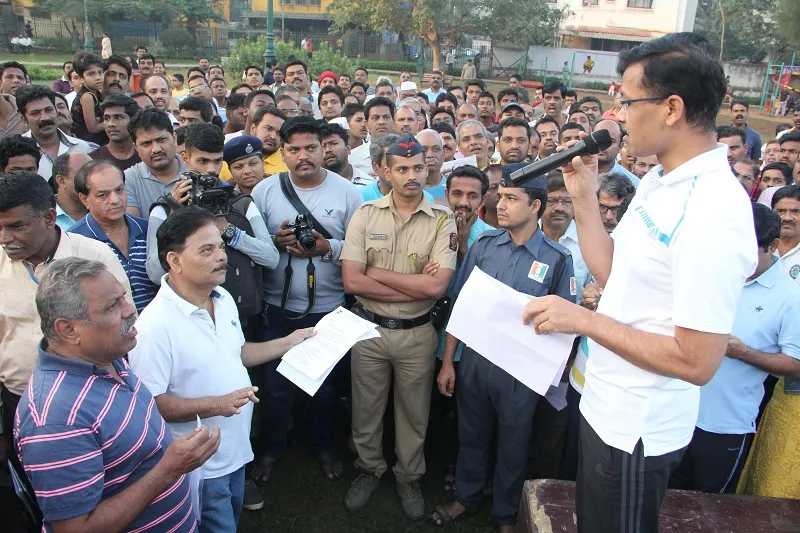
PMPML – then and now
In his current stint, Mundhe is keen to work on fixing operations, discipline and maintenance. Mundhe list the progress at PMPML since March 2017 in following terms:
- EPKM (Earning per km) was Rs 51 whereas CPKM (cost per kilometer) was Rs 84. High CPKM cost was due to high establishment cost, private operator's cost and absenteeism. Contractual employees, no maintenance schedules, vehicles in bad shape, issues with spare parts and non-functioning of central workshop adds to the cost. In three months, absenteeism had come down from 40 percent to almost 6 percent.
- PMPML was witnessing a large number of breakdowns and out-of-service vehicles. In the last three months, the number of vehicles which are out of service has come down from 300 to around 50. PMPML has introduced a proper maintenance schedule which includes servicing the vehicle after 3,700 km, half docking at 20,000 km and full docking at 40,000 km.
- Cleaning of buses was outsourced earlier. PMPML has made it in-house ensuring that each bus is clean now.
- The behaviour of conductors and drivers was very rude earlier. The CMD has started taking action against them and even dismissed 8-10 employees who abused or refused to give seats to ladies or elderly persons.
- In three months, the daily ridership has gone up from 6.5 to 7 lakh (excluding the pass holders) to more than 9 lakh people.
- Income per bus per day has gone up to more than Rs 10,000 from Rs 8,000 (three months ago).
- Revenues (of PMPML) per day have gone up from almost Rs 1.4 crore in March to Rs 1.7 crore now.
- Of the total fleet of 2,045 buses, only 1,250 buses were plying in March 2017, whereas more than 1,600 buses are on the road now.
- An intelligent traffic management system has been implemented.
- PMPML claims to be the first transport unit in India to go live with real-time online e-ticketing for buses. The AFCS- automatic fare collection system allows the CMD to track buses and tickets issued on a real-time basis. ETM’s (electronic ticketing machine) usage has gone up from 40 percent to 100 percent in three months.
- PMP e-connect app is available for netizens to get information on buses and to file grievances. The app has already crossed 10,000 downloads on Play Store. Mundhe explains,“When you upload a grievance, you will get a tracking number, and an officer will be allocated. If he/she does not open the complaint within 24 hours, that gets automatically escalated to a higher officer, and the officer gets a rating of 1 (on a scale of 1-5). This rating will be taken into account during the officer's performance appraisal.”
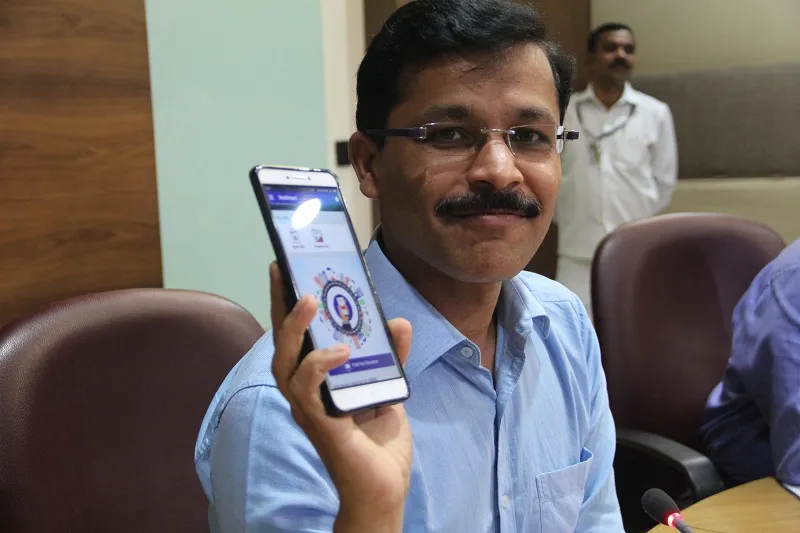
At PMPML, Mundhe has introduced and strengthened accountability, transparency, and tracking without human discretion. He says,
PMPML is committed to providing mobility through transport for economic activities, schooling, education, markets, healthcare, which will lead to the reduction of carbon footprint, thus promoting sustainable development. Transport is not an aim, it is a means. We have to be affordable, accessible, efficient, and secure. My aim is to make this company sustainable on its own, and not dependent on others. It may require some time but we are moving in that direction.
Mundhe, know the man
Mundhe believes that there is an inner drive in him to be a leader, a transformer, and a change maker. He says,
I ask myself, if I cannot, who else can? Being an IAS officer, if I cannot transform systems, if I cannot give them (citizen) leadership, if I cannot give them motivation, then who else can?
He believes in Gandhi's statement – ‘Be the change you want to see’. He adds, “I don't believe in creating followers, I believe in creating leaders.”
Mundhe considers his high speed as his weakness because it often upsets many people (working with him), and his commitment as his biggest strength.
Read part - 1 of Tukaram Mundhe's story here - How an honest IAS officer is fighting corruption and inefficiency, one district at a time
Twelve years, nine transfers
At times, Mundhe feels bad about his transfers every few months. He believes that he can contribute much more if he spends more time in a place. He says, "In one year I can change the system but I cannot stabilise it. I do feel bad sometimes that I'm posted here and there. But I still believe that what I'm doing is right. I know that if I had more time in each posting I would have been more effective."
He feels that a lot of people cannot get along with him because of his high speed. He keeps everything on priority. At PMPML, he is working on ITMS, stores, discipline, fleet management, and future course. He’s working on all of them simultaneously. He says,
It's possible that I may have made mistakes in my career but I know that I'm doing my best in terms of morality and transparency. There'll be people who'll get affected by my work. And some of the powerful people may be affected even more badly. They'll have a grudge against me and as a result there are troubles in my functioning. If somebody doesn't have anything to say against my functioning, they'll say I'm arrogant and that I don't listen. This is the only charge I've encountered in my 12 years of career, and nothing else.
If he gets more time in PMPML (at least 2 years), he’s hopeful about strengthening the systems and making them permanent. He adds, “But I don’t know if I'll get that time. My effort is to give my best for whatever time I am there.”
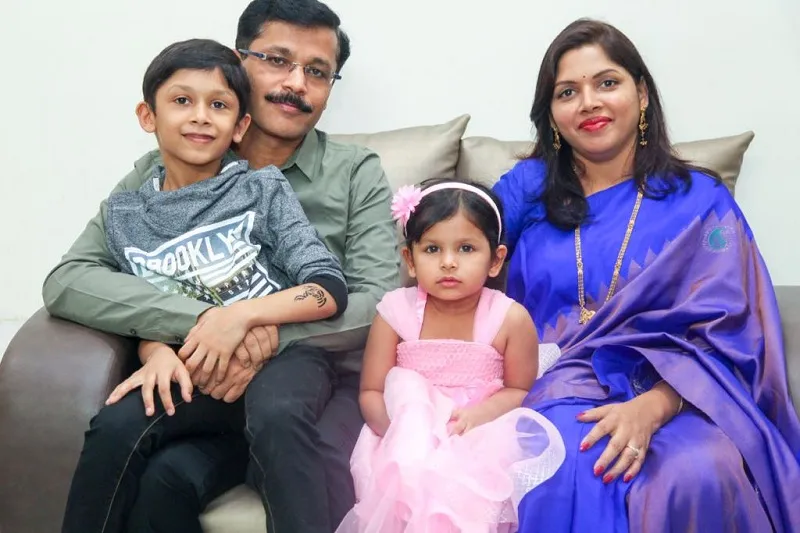
Building India, building organisations
Mundhe urges everyone to contribute towards the development of India. He wants everyone to be the change they want to see. He says,
You always say that India is corrupt. When you are saying that India is corrupt you are saying that you are corrupt. You can be the torchbearer by not being a part of corruption. Preventing others from doing it may be difficult for you but not being a part of it is easier.
He adds, “If you want a clean city, don’t make it dirty. I am not asking you to make it clean. For the growth of India, you just ask one question -- how are you contributing for the betterment of someone other than you.”
According to Mundhe, success speaks for itself, whether it is a government organisation or a private organisation. He believes that in order to make an organisation robust enough you’ve to provide leadership and processes. He explains, “You have to give lot of thought to what processes and systems you are building, so that the organisation can become strong and efficient. It will require certain time. While implementing these processes and systems, you will face a lot of hiccups and there will be resistance.”
Family and future
Mundhe’s family has been more than fair to him throughout his journey. He feels that he has been unfair to his wife and children and not given enough time to them.
Mundhe follows a simple philosophy of efficacy at work all the time and wants to carry on with it in future as well. He says,
Whatever field am in I should be able to take the system at least two steps higher than where it was when I joined. It should be making difference in the lives of common people. I should be remembered as an effective officer in any posting, rather than as a good officer. Because good officers are not necessarily efficient officers.







